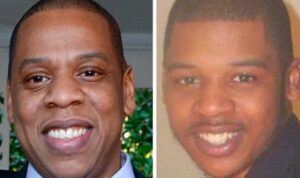A mother, Han Tae-soon, has launched a lawsuit against the South Korean government after being separated from her daughter for 44 years, highlighting the dark history of the country’s overseas adoption practices.
Historical Recompense: Mother Sues South Korean Government After Reuniting with Kidnapped Daughter

Historical Recompense: Mother Sues South Korean Government After Reuniting with Kidnapped Daughter
A heart-wrenching saga spanning decades culminates in legal action against South Korea's government.
Han Tae-soon’s journey began in May 1975, when her six-year-old daughter, Kyung-ha, disappeared during a trip to the market. For over four decades, Han searched tirelessly for her lost child, eventually reuniting with Kyung-ha, now known as Laurie Bender, in 2019. The reunion revealed that Kyung-ha had been abducted and illegally adopted by a family in the United States, prompting Han to hold the South Korean government accountable for its role in allowing such practices to occur.
Han's case is part of a broader reckoning with South Korea's controversial adoption regime, which has seen approximately 170,000 to 200,000 children sent abroad since the 1950s. A recent inquiry uncovered systemic human rights violations and raised questions about the oversight of private adoption agencies that handled these processes, leading many to question the ethical standards of the system.
Now 71, Han is determined to see justice served. “I spent 44 years ruining my body and mind searching for my daughter,” she told the BBC. “But in all that time, has anyone ever apologised to me? No one. Not once.” Her lawsuit, one of the first of its kind, seeks to emphasize the state’s responsibility in the alleged kidnappings and illegal adoptions that have marred the lives of countless families.
In her relentless quest for her daughter, Han combed through police stations, orphanages, and even appeared on television, seeking answers. The breakthrough came when she connected with a group known as 325 Kamra, which matched her DNA with that of her daughter living in California.
During their emotional reunion, Han expressed deep remorse for not being able to protect her daughter. “It’s like a hole in your heart has been healed; you finally feel like a complete person,” said Kyung-ha about their meeting. Their elation, however, is tinged with sorrow, as they face language barriers and continued emotional struggle to bridge decades of separation.
The broader implications of this case resonate throughout South Korea, where the legacy of its adoption policies continues to affect families. The Truth and Reconciliation Commission previously reported that thousands of children were taken under fraudulent circumstances, leading to ongoing lawsuits and calls for accountability.
As the government confronts this painful era, it remains to be seen whether cases like Han's will pave the way for greater acknowledgment and justice for both adoptees and their birth parents. “This is a human rights issue,” declared Han Boon-young, an advocate for adoptee rights. “We must recognize these experiences and hold the people who committed these violations responsible."
While the South Korean government asserts sympathy towards individuals like Han, there is a clear need for a more robust framework to protect birth parents and adoptees from future injustices. As the case progresses, Han hopes it will not only bring her closure but spark broader reforms to ensure such tragedies never occur again.
Han's case is part of a broader reckoning with South Korea's controversial adoption regime, which has seen approximately 170,000 to 200,000 children sent abroad since the 1950s. A recent inquiry uncovered systemic human rights violations and raised questions about the oversight of private adoption agencies that handled these processes, leading many to question the ethical standards of the system.
Now 71, Han is determined to see justice served. “I spent 44 years ruining my body and mind searching for my daughter,” she told the BBC. “But in all that time, has anyone ever apologised to me? No one. Not once.” Her lawsuit, one of the first of its kind, seeks to emphasize the state’s responsibility in the alleged kidnappings and illegal adoptions that have marred the lives of countless families.
In her relentless quest for her daughter, Han combed through police stations, orphanages, and even appeared on television, seeking answers. The breakthrough came when she connected with a group known as 325 Kamra, which matched her DNA with that of her daughter living in California.
During their emotional reunion, Han expressed deep remorse for not being able to protect her daughter. “It’s like a hole in your heart has been healed; you finally feel like a complete person,” said Kyung-ha about their meeting. Their elation, however, is tinged with sorrow, as they face language barriers and continued emotional struggle to bridge decades of separation.
The broader implications of this case resonate throughout South Korea, where the legacy of its adoption policies continues to affect families. The Truth and Reconciliation Commission previously reported that thousands of children were taken under fraudulent circumstances, leading to ongoing lawsuits and calls for accountability.
As the government confronts this painful era, it remains to be seen whether cases like Han's will pave the way for greater acknowledgment and justice for both adoptees and their birth parents. “This is a human rights issue,” declared Han Boon-young, an advocate for adoptee rights. “We must recognize these experiences and hold the people who committed these violations responsible."
While the South Korean government asserts sympathy towards individuals like Han, there is a clear need for a more robust framework to protect birth parents and adoptees from future injustices. As the case progresses, Han hopes it will not only bring her closure but spark broader reforms to ensure such tragedies never occur again.




















